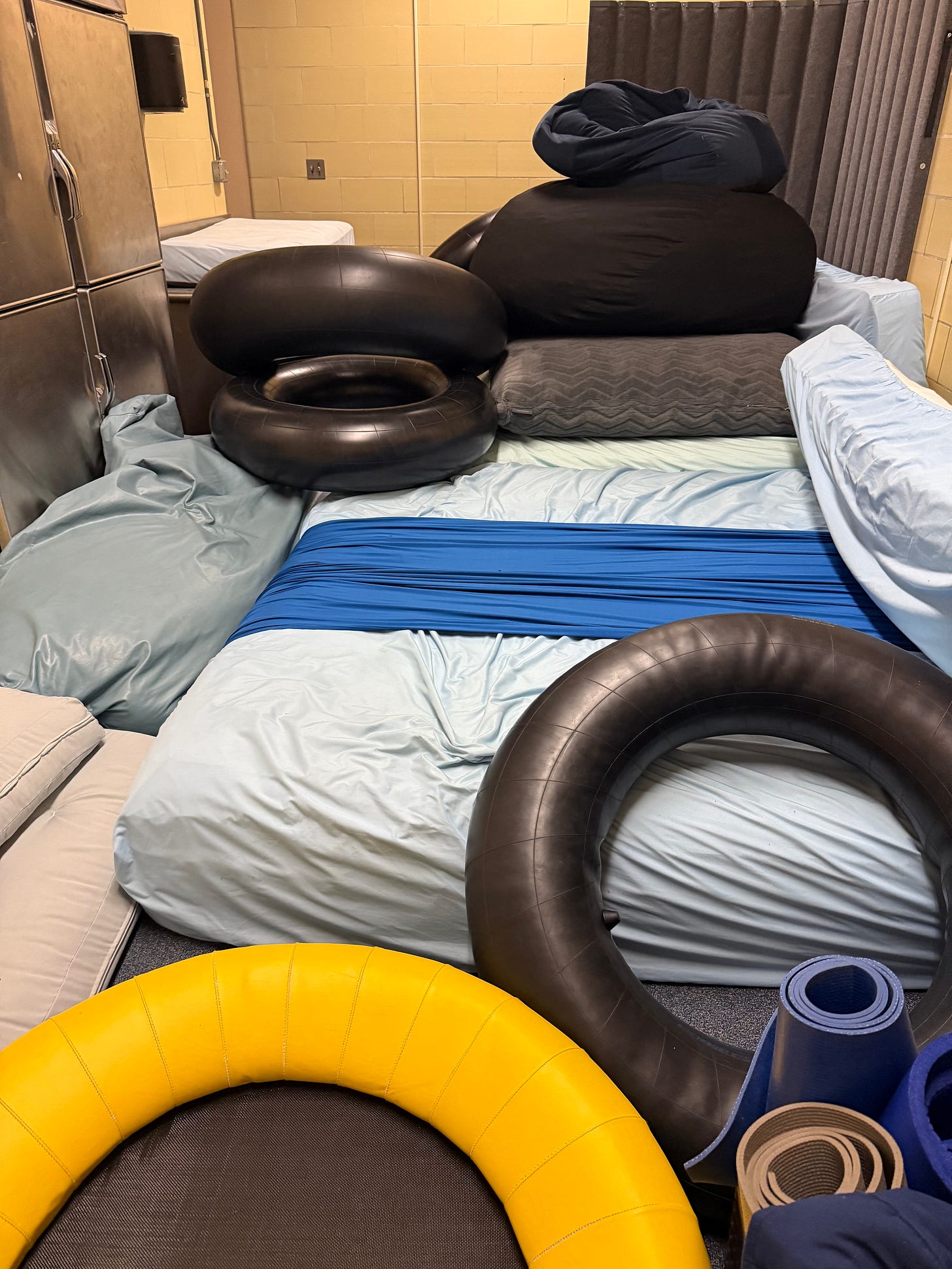Day Two started with similar wind speed but I couldn’t wait to get back to Easton Country Day School (ECDS), especially after the failed attempts (yes, multiple) at making waffles.
As I skipped into the school foyer, teachers greeted students, students were happily chatting and playing in the hall, and I noticed one student who we will name Noah* sitting on one of the armchairs holding bags of goodies.
Me, being my nosy self, walked up to him and began an interesting conversation: “Good morning Noah.”
“Good morning Miss Australia!” (Ha, no, I’m not Jennifer Hawkins.)
“What are you holding?”
“They’re brownies for my teacher.” [In a Mid-Atlantic accent]
“Oh, is it for Easter?”
“No, because my teachers work really hard.”
Mic drop, sorry, what?
Yes, you just heard it, Noah was being proactive, he and his mum spent Wednesday afternoon baking brownies for his teachers because they “work really hard.”
How do you think this will make his teachers feel? Valued? Seen? Grateful? At ECDS, the turnover of staff is extremely low because students care about them, the executives listen to them and everyone is proactive in helping each other. While I was visiting for three days, I witnessed one teacher without complaint taking another teacher’s class because they were going to be in a parent meeting; I witnessed Ms Ilka starting a PE lesson because that teacher was running late; I witnessed parents volunteering for a field trip (excursion in Australia) because they were being proactive in helping their child’s school.
How can you be more proactive in your daily interactions? I’m not saying you need to do more because in 2025, we are doing more than ever. Our weekends are filled with endless errands, catching up with family and friends, working on our side hustle, planning for the week ahead, driving kids to extracurricular commitments, we are doing a lot.
But as educators, how can we be more proactive during school hours? As students, how can you be more proactive during school hours?
Before I left, one of my friends and colleagues rang me and left a voicemail. She informed me that one of our friends and colleague’s mother is really ill. This colleague was being proactive, she noticed that I wasn’t at the meeting, she knew I would’ve wanted to know and she took two minutes out of her day to let me know. She didn’t have to ring me, but she did, and I feel grateful.
On Day Two, I interviewed Ms Kate West who runs the Arrowsmith Program at ECDS. This program was founded by Barbara Arrowsmith-Young over forty years ago as she researched expansively on learning disabilities through lived experiences. Ms West demonstrated some of the cognitive exercises that students engage in which help with their memory, processing speed or reasoning skills. I noticed a student who was working on a clock exercise on the computer. Ms West went on to tell me that this student is actually an ex-student, and Ms West lets her come back to school to continue with the program because they are struggling at college.
What’s happening here? Ms West is being proactive in helping an ex-student. Ms West gives the time and space for this ex-student to continue working on their cognitive challenges. Ms West wants this student to succeed beyond ECDS. What can we learn from Ms West?
My day ended with an observation of an occupational therapy session with Ms Erin Murtaghe who is one of the in-school occupational therapists at ECDS. In this session, Ms Murtaghe ran through some exercises with the student. What intrigued me was the conversation that Ms Murtaghe engaged in with the student.
“How is school going today?”
“What are you struggling with in Science?”
“Let’s work on this activity that may be helpful in Science.”
Throughout the whole session, Ms Murtaghe was being proactive in helping this student both verbally and non-verbally. Not once did she judge the student on their struggles. This student felt safe and seen. I later interviewed Ms Murtaghe (podcast episode coming after the study tour), she encourages teachers to build routines into our natural environment that assist with emotional regulations. This can be as simple as checking in with a student knowing that they may be struggling with something or helping a colleague out without wanting anything in return.
“We want to regulate proactively, not reactively.” Ms Murtaghe
Mental Health Tip #5: Be proactive in our natural environment because we care.
If you have a question on youth mental health, please submit it through this form!
* Student names have been changed to protect their privacy.





